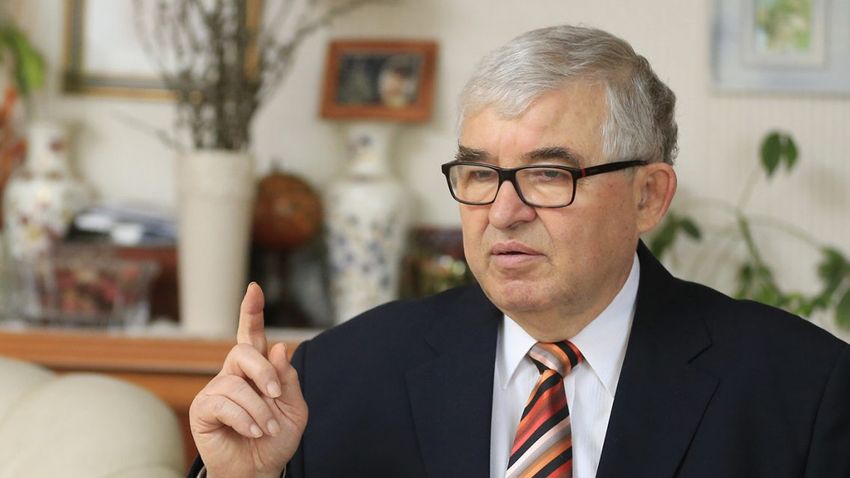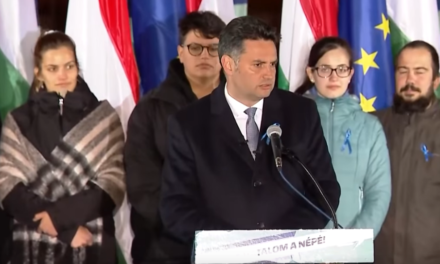In order to understand the Russo-Ukrainian war, it is necessary to dive deep into European history, at least until the beginning of business in 1694, when the Bank of England was founded as private property, writes economist Imre Boros in his in Magyar Hírlap .
In the past 328 years, the masters of private money have fundamentally changed the face of the Western world. From this date on, it is customary to speak of the new era, to call the past centuries capitalism, and the empire founded on private money the Anglo-Saxon empire.
The nature of the empire has not changed at all with the fact that in the last more than a century (since 1913) the private money has been the dollar, which has become the constantly strengthening world money. The empire of private money power was gradually taken over by the Union States as host state. The two world wars that took place in the first half of the 20th century provided the necessary framework conditions for its final fulfillment.
After completing its imperial work, the Bank of England was nationalized in 1946. The American central banking system (Federal Reserve System), on the other hand, is still privately owned by unknown persons, and even the American Congress can only have a symbolic say in its affairs, even though the two houses of the Congress together with the current president represent American state sovereignty. However, the state's sovereignty is deprived of its control over "American money" in the same way that the British Empire had its own from 1694. After the fifty-year republic, the new rulers chosen by the money lords already reigned in such a way that they handed over the "burdens" of governance to the money lords.
It is no different in the United States today. In fact, the American state structure is also dual, it is divided into a public and a non-public part (deep state). The latter, the non-public one, represents the interests of the financial world domination, which includes, for example, the gigantic war budget. We do not even remotely think that the private monetary empire organization did not arouse the interest and jealousy of other powers in time. The French Revolution originally erupted (detonated) with the goal of another large country on the continent joining the empire of private money.
However, the enterprise temporarily went bankrupt, France did not join the empire of private money, but was organized into a counter-empire based on state money through Napoleon Bonaparte. The private money empire had to gather all its knowledge in order to dominate its competitors. Although the private money empire was far from the traditional sacral organization, it still succeeded in lining up all the sacredly organized powers of Europe (Austria, Prussia and Tsarist Russia) against Napoleon, because by then these state structures had become strongly financially dependent on the pound-based private money empire. This empire provided loans for the expenses of their mutual rivalry. (It was rumored that if someone wanted to go to war, they would first ask the Rothschilds.)
The private money empire had to struggle with the other rising giant, the Germans and their empire, for almost eighty years. The trouble was accompanied by two proxy wars and two devastating world wars. Prussia, which unified the German-speaking territories with alarming speed, was a serious opponent, even though the lords of private money also felt the urge to channelize the German territories. They saw an opportunity for this if unification took place under the leadership of Austria, which they had already integrated into their monetary empire since 1916, under the Habsburg crown.
The rivalry could not end with an agreement between Austria, which was dependent on the monetary empire, and Prussia, which used independent state money. Austria was supposed to stand as a proxy for the interests of the private money empire, but in 1866 it suffered a fatal military defeat. The next proxy role fell on France, which had long been dependent on the British private money empire, and also ended with a German victory (Sedan, 1870). The crown of the Prussian king was placed on the head not as the emperor of the united Germany, but as the emperor of all Germans, with a very symbolic meaning, in Versailles.
Germany seemed unstoppable, claiming colonies like a money empire and growing economically and militarily at breakneck speed. Largely based on German developments, the private money power decided to move its headquarters to the United States. The financial chaos of the previous decades - from which, by the way, they previously derived a lot of profit - was eliminated in record time, and a central banking system was created above the dollar, also owned by unknown private owners. There is every reason to consider the two-part world war essentially a struggle for one and the same goal, since it was about whether the Germans could be deterred once and for all from their aspirations for world power. The two-part world war still determines the fate of Europe, in which we were always on the German side and always on the losing side, it could hardly have been any other way.
The victorious states of Europe fared better after 1945, because in the endgame the new private money center at least brought them economic recovery and prosperity. The Germans also received this prosperity in two rounds (1949 and 1989), in exchange for swearing unbroken loyalty to the power of private money. Today, we once again believe that the fate of Europe depends on the Germans, and mainly on how they relate to the Russians in this situation.
German-Russian relations have been very varied in the last two centuries. After 1815, the Holy Alliance united the sacral states (Austria, Prussia, Russia) against the desacralized ones (England, France). The transfer of the Russian side to the side of the desacralized (Crimean War) was undoubtedly a brilliant move. This was the prerequisite for the First World War to end with the victory of the desacralized. However, already in the years of misery after the lost war (Weimar Republic), Germany sought cooperation with Soviet Russia, its former wartime adversary, which was now heading in the communist direction.
This was what the Rapallo Agreement (1922) was about. The fruitful German-Russian economic cooperation did not end even after the Nazis took power in 1933, on the contrary, it was even supplemented for a short time with military fraternization (Molotov-Ribbentrop Pact). It also proves the genius of the financial world power, as it led the two dictatorial regimes against each other between 1941-45, instead of further beneficial economic cooperation, to destroy each other to the ground, repeating the practice of the First World War. The new German-Russian rapprochement took place under the Brandt-Schmidt social democrats. The system changes after 1989 again directed the attention of Germans towards the states freed from Soviet rule, including the Soviet successor states.
However, many of the top economic leaders representing the economic policy course that led to this were victims of assailants unknown to this day. The level of Russian-German economic relations is still very satisfactory to the parties. Russia supplies Germany with energy carriers, valuable raw materials and basic agricultural products in exchange for high-value German industrial products. Germany, like many times over the past century, is still at the turning point of European fate in connection with the Russian-Ukrainian war. Since the opening to the East, a huge system of common economic interests has been built up with the Russians. The German deficit in bilateral trade is large.
The backbone of German imports (59 percent) is the import of natural gas and crude oil. With its 27 million tons of petroleum, Russian imports are the largest, supplemented by 8 million tons from pro-Russian Kazakhstan. The 472 companies operating in Russia employ more than 130,000 people. As far as natural gas is concerned, it is physically impossible to replace it from elsewhere if deliveries to Russia are lost, and this is also the case with crude oil. It should be mentioned that German industry has numerous serious offshoots in the V4 countries and elsewhere. If, in a self-defeating way, the Germans ignore all economic logic and extend the sanctions to energy carriers, they will inevitably drag the single European market connected by a thousand threads with them. In the short term, there is no chance for alternative sources of energy, but in the longer term, there is little chance either.
Germany has not experienced such a test of separation since 1945, when it took the oath of loyalty to the private money world empire in exchange for being able to live in prosperity. Now the private money world power would ask the Germans to put their prosperity at risk, and what's more, to drag the whole of Europe with them, secretly hoping that the private money power will gain management rights over the immeasurable Russian natural energy and raw material wealth. In the worst case, it will only crush a weakened Europe.
To this end, another proxy war is being waged with the Ukrainian proxy actor, if necessary, to the last Ukrainian soldier. We are part of the European Union. By the way, if we were not in this geopolitical situation, it would not be much more favorable here, in the middle of Europe. Our existence depends on having a consistent policy of national interest in the country, because today any wavering can be fatal. Every unprincipled deal made against our interests does not increase, but actually decreases our chances of successful survival.
Cover image: Hungarian Nation













